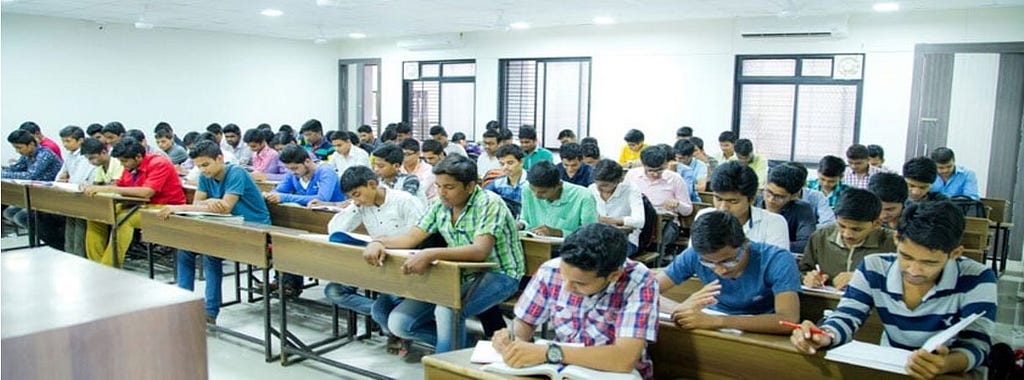
Impact of New Regulatory Guidelines on Coaching Centres
The Department of Higher Education unveiled the “Guidelines for Registration and Regulation of Coaching Centers 2024.” This guideline primarily provides suggestions to State / UT to regularize coaching centers operating in their region, offering guidance in study programs, competitive exams, or academic assistance for groups >50 students.
Synopsis:
The guideline imposes significant regulatory and compliance requirements on the coaching industry including but not limited to registration, renewal of licenses and disclosure requirements. At the same time, there are some welcome changes that will help better regulate the sector. Misleading advertisements and claims has been a long bane of the coaching center business which this regulation addresses. High suicide rates and mental pressure faced by students have been suitably acknowledged and guidelines provides for adequate space requirement, facilities for holistic development, focus on mental health among other things.One of the key points mentioned is that coaching centers cannot enroll students below 16 years of age and only after completion of secondary school examination. Historically, taking advantage of parent’s desire to see their kids go to good institutions, had started offering foundation courses as early as Grade 6.The regulation also prescribes penalty for defaulters giving teeth to the guidelines. Below, we cover on further detail on some of the key highlights of the guideline and its impact on business owners, parents and students.
Key Highlights:
1. Registration & Increased Compliance Requirements
Governments to create an online portal for registration for new & existing coaching centers. Each branch will have to be registered individually. Audited annual accounts will have to be submitted for renewal process.
2. Increased Transparency in Operations
The regulation covers significant disclosure requirements on the website from tutors, courses, duration of the program, hostel facilities, fees, easy exit & refund policy, and number of students and those successfully admitted to HEIs to ensure increased transparency for students and parents.
• Refund policy: Midway withdrawal by student or dropout eligible to receive a pro-rated refund within 10 days, including hostel & mess fees if applicable.
• Marketing guidelines: Centres to refrain from publishing misleading advertisements on quality of services, facilities offered or student results.
Impact: Operational overheads for smaller, one/few center coaching institutes resulting from tasks such as continuous real-time website upkeep, additional infrastructure requirements, meticulous record-keeping, including the preparation of annual and audited financial reports will prove to be a challenge.
Larger, more established players could potentially benefit as they will be better placed to follow through on the regulatory requirements.
3. Infrastructure Requirements:
The regulation proposes minimum one sqm. area to be allocated for each student during a class / batch. Adherence to fire safety, building safety codes and other standards. Fire and Building Safety Certificates to be procured from the appropriate authorities.
This will ensure a minimum quality of infrastructure available for quality delivery of the program and ensure safety and security for the students.
4. Student Enrolment
NEP 2020, Para 4.36 talks about “The current nature of secondary school exams, including Board exams and entrance exams — and the resulting coaching culture of today — are doing much harm , especially at the secondary school level, replacing valuable time for true learning with excessive exam coaching and preparation”.
One of the key points addressed in this regulation is that coaching centers cannot enroll students below 16 years of age and only after completion of secondary school examination. Historically, taking advantage of parent’s desire to see their kids go to good institutions, had started offering foundation courses as early as Grade 6.
This has the potential to have significant business impact for the industry as coaching centers will no longer be able to target the Grade 6–10 demographic. A newer model to engage with younger kids through the K-12 schools system (many institutions already do this) or potential other creative solutions will have to explored.
5. Curriculum & Class Delivery
• Awareness: Coaching institutes to emphasis more on awareness about the nature of competitive exams amongst students.
• Flexibility: Coaching of students with spaced out routine for not more 5 hours to be conducted, not during school hours; weekly offs with no test on the day after.
• Holistic Development: Emphasis on remedial classes, co-curricular activities, and organisation of counselling sessions on non-core subjects.
• Mental Health: In addition to outlining admission opportunities in engineering and medical institutes, furnish information about various alternative career paths to alleviate stress and empower students to explore diverse career options confidently.
Impact:
• Changes in class delivery and systematic change in curriculum will need operational planning and resource allocation. Cap on student number in each class would lead to changes in current student to teacher ratio.
• Incorporation of counselling sessions on non-core subjects into their services. This adds a new dimension to coaching centre operations, requiring the recruitment of qualified counsellors and the development of programs to address students’ non-academic needs.
6. Regulatory Framework
A Competent authority to look after the disputes between the stakeholders with power to levy penalties and cancel registration for non-compliant institutions.
In light of the above changes, business owners will need to assess and adapt their operations. This will help credible entrepreneurs and educationists by dissuading non-serious shops and foster further trust with the student and parent community. There will be enhanced business opportunity for institutions and promoters who successfully navigate and comply with the regulations proactively.
The regulation has positive implications for students and parents with increased transparency, emphasis on mental health and the provision of support services will positively impact students’ overall well-being and will lead to reduction in academic burnout.
Please write to us at connectwithus@loestro.com

